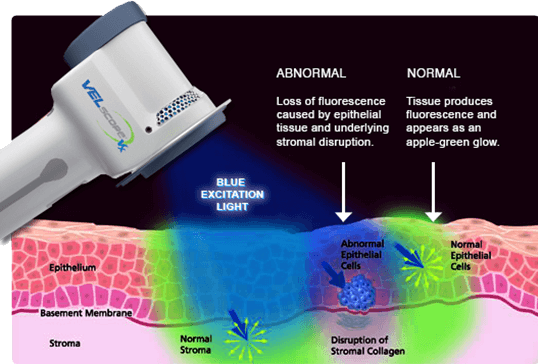Oral Cancer Screening - Important facts that you should know
According to Health Canada, oral cancer is the 13th most common form of reported cancers in Canada. Defined as any atypical growth or spread of cells in the mouth cavity, oral cancer survival rates are greatly affected by early detection of the disease. Our office takes a pro-active approach to oral cancer with regular screenings.
If you notice any of the following on your lips, cheeks, tongue or throat, be sure to call our office right away:
- A lump, bumps or other changes of texture in your mouth
- Lingering sores that do not heal
- White or red patches that are persistent
- Bleeding, swelling or numbness
- Issues when swallowing
- Changes to how things taste
- Changes in sensation in your tongue
While many of these symptoms can be caused by other complications, seeing your dentist immediately will be of great benefit to resolving problems.
Oral Cancer Risk Factors
As with any form of cancer, certain behaviors and predispositions are considered risk factors in developing oral cancer. The following may increase your risk:
- The use of tobacco products through smoking or chewing
- Excessive alcohol intake
- Family history of oral cancer
- Leukoplakia (thick, whitish patches in the mouth) diagnosis in the past
- Poor nutrition and general health care
- Prolonged exposure of your lips to the sun
Diagnosing Oral Cancer

During your regular visits to our office, we will be checking your mouth for any signs of changes in the soft tissues of your oral cavity and we will note any abnormalities that require additional examination. VELscope® is a specialized device that uses blue light to light up healthy tissues and make unhealthy tissues appear dark. Known as fluorescence, this technology is an excellent screening tool. If unhealthy tissue is found, additional imaging, a tissue biopsy or a referral to a medical doctor may be required.
Oral Cancer Treatment
Treatment plans are determined on a case-by-case basis but may include:
- Surgery / procedures to remove tumors or affected tissue
- Radiation
- Chemo
Give our office a call today to learn more or schedule your check-up.

